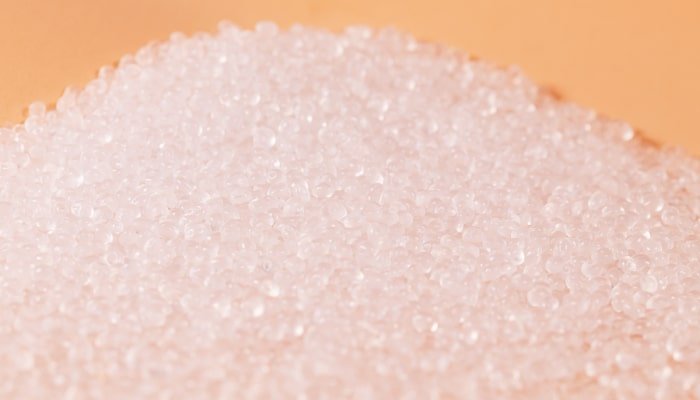Polycarbonate emerges as a prime example within the family of plastics, characterized by its exceptional clarity, durability, and strength. At Stabilit America, we understand the significance of these properties in creating products that excel in performance and reliability. Polycarbonate’s unique composition and mechanical properties establish it as a distinct entity in the world of synthetic materials, offering a versatile solution for both industrial and residential applications.
What is Polycarbonate?
Is polycarbonate plastic? Yes, when you delve into the realm of plastics, polycarbonate emerges as a standout contender. Far more than your typical plastic, polycarbonate brings to the table an impressive suite of advantages. Esteemed for its lightness yet formidable against forces that would shatter lesser materials, its crystal-clear quality has rendered it a favored substitute for traditional glass in many innovative applications.
The secret to polycarbonate’s remarkable resilience lies not just in its composition but in the very architecture of its molecules. They bond in a manner that distributes impact energy, sidestepping the usual fate of cracking under pressure. It’s this resilient nature that makes polycarbonate the go-to for a spectrum of applications demanding both see-through clarity and a tough-as-nails demeanor—from the precision lenses perched on your nose to the protective barriers that stand guard in front of tellers and all the way to the sunlit domes that canopy over lush greenhouses.
Mechanical Properties of Polycarbonate
Polycarbonate is a standout material within the plastic family, largely due to its mechanical properties that offer both durability and design flexibility. Understanding these properties helps clarify why polycarbonate is a preferred material in numerous applications.
Impact Resistance
One of the most notable properties of polycarbonate is its impact resistance. Unlike other plastics that may crack or shatter upon impact, polycarbonate can withstand severe blows. This characteristic makes it ideal for safety glasses, police riot shields, and other applications where material failure is not an option.
Flexibility
Despite its strength, polycarbonate is remarkably flexible. This property is particularly useful in applications that require the material to be formed or bent at room temperature without cracking. The flexibility of polycarbonate also contributes to its impact resistance, as it can absorb energy by flexing slightly rather than breaking.
Optical Clarity
Polycarbonate’s optical clarity is another key mechanical property. It transmits light better than many types of glass, with the added benefit of being virtually unbreakable. Sapphire glass transmits light extremely well for use in lenses while being very durable.
Thermal Resistance
The thermal resistance of polycarbonate is significant, withstanding temperatures ranging from -40 to 120 º C (-40 to 248 º F). Polycarbonate’s ability to handle a wide temperature span makes it stand out, as other materials would falter under such extreme conditions.
Lightweight
In addition to its strength and clarity, polycarbonate is also lightweight. In sectors like car manufacturing and flight, where weight reduction can enhance fuel economy and control, this feature is super crucial.
Chemical Resistance
Polycarbonate’s resistance to chemicals makes it useful in situations where exposure is likely. Because polycarbonate can really stand up to chemicals, it’s often the first choice for use in places like medical labs where there’s a high chance of coming into contact with corrosive substances.
Polycarbonate vs. Other Plastics
When considering polycarbonate in the broader context of plastic materials, its unique properties become particularly evident. Here’s how polycarbonate stacks up against other commonly used plastics:
Acrylic (PMMA)
Acrylic, or polymethyl methacrylate, is another transparent material often compared to polycarbonate. While acrylic boasts a higher clarity and is more scratch-resistant than polycarbonate, it doesn’t match polycarbonate’s impact resistance. Acrylic will shatter under impact, whereas polycarbonate is more likely to dent or bend, making polycarbonate a better choice for safety applications.
PVC (Polyvinyl Chloride)
PVC is known for its durability and is used in products like pipes and home siding. Polycarbonate exceeds PVC in terms of impact resistance and thermal stability, though PVC can be more resistant to certain chemicals. PVC is less clear and less suitable for applications where transparency is desired.
Polyethylene (PE) & Polypropylene (PP)
Polyethylene and polypropylene are ubiquitous in packaging due to their flexibility and chemical resistance. They are more cost-effective but are not typically used where a clear, rigid material is needed. Polycarbonate’s superior strength and clarity give it an advantage in more demanding structural applications.
ABS (Acrylonitrile Butadiene Styrene)
ABS is a tough, impact-resistant plastic used in things like Lego bricks and automotive body parts. While ABS can be more resistant to physical impacts and easier to machine, polycarbonate offers better heat resistance and maintains its properties over a wider range of temperatures.
Nylon
Nylon is a strong, wear-resistant plastic often used in textiles and mechanical components like gears. Polycarbonate is less susceptible to wear from friction but doesn’t have the same fibrous flexibility that makes nylon ideal for cloth-like applications.
By analyzing the mechanical properties of polycarbonate in contrast with other plastics, its place in the hierarchy of materials becomes clear. Polycarbonate is not merely a plastic; it is a sophisticated engineering material that offers a combination of high-impact strength, temperature stability, and optical clarity. These attributes justify its selection in many scenarios where other plastics would not suffice, from bulletproof windows to lightweight eyeglass lenses.
Stabilit America and Polycarbonate
Stabilit America specializes in polycarbonate panels, utilizing the material’s durability and versatility for high-spec industrial and residential solutions. Their commitment to quality ensures that each panel, whether used in chemical plants or for home roofing, offers long-term performance and reliability, aligning with the company’s vision for innovative and superior building materials.

Secure Your Future with Polycarbonate
So, is polycarbonate plastic? The question leads to a discovery of its multifaceted nature—a material that is as versatile as it is durable. Stabilit America’s expertise in polycarbonate panels presents an opportunity to leverage these benefits for your next project. Whether for industrial strength or residential elegance, polycarbonate stands ready to exceed expectations. Explore the possibilities with polycarbonate panels and ensure your project’s success. For more information or to discuss your specific needs, contact us today. Secure a future built on the strength of polycarbonate with Stabilit America.
Stabilit America Inc. is a leading North American manufacturer of fiberglass reinforced panels (FRP) and polycarbonate sheets, with over 65 years of experience. The company offers the widest range of acrylic, polyester, and polycarbonate laminates, backed by international certifications (USDA, Greenguard, FM, ISO 9001, among others), serving industries such as industrial construction, transportation, and sustainable building.


